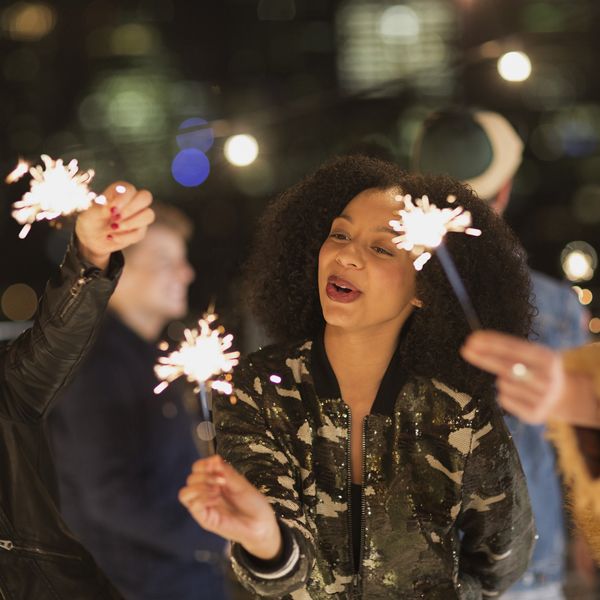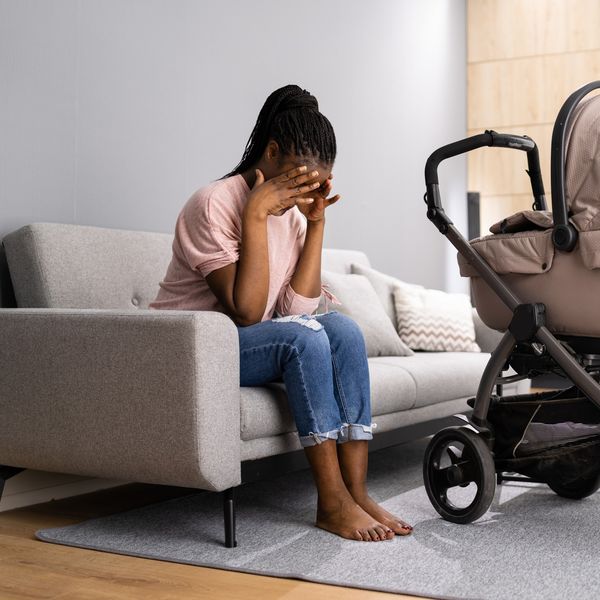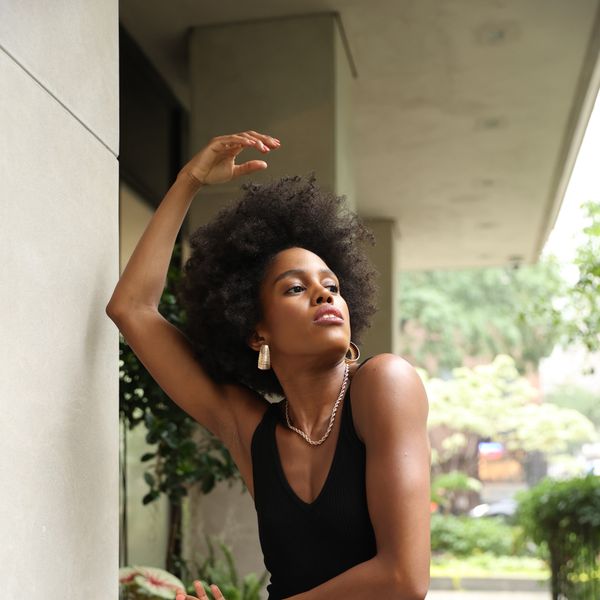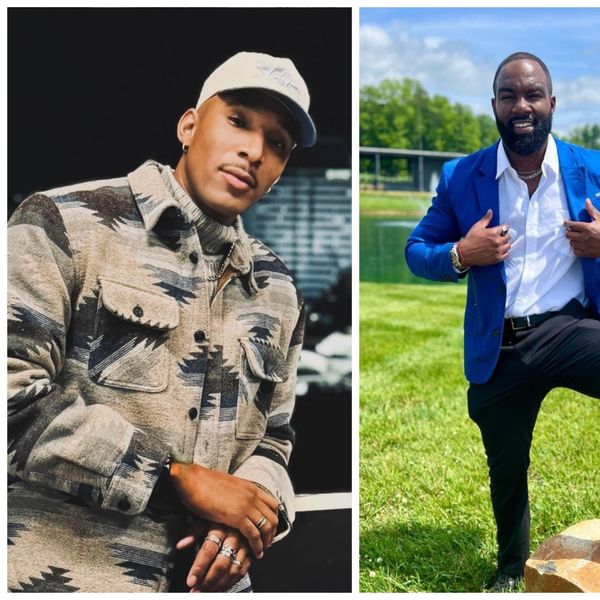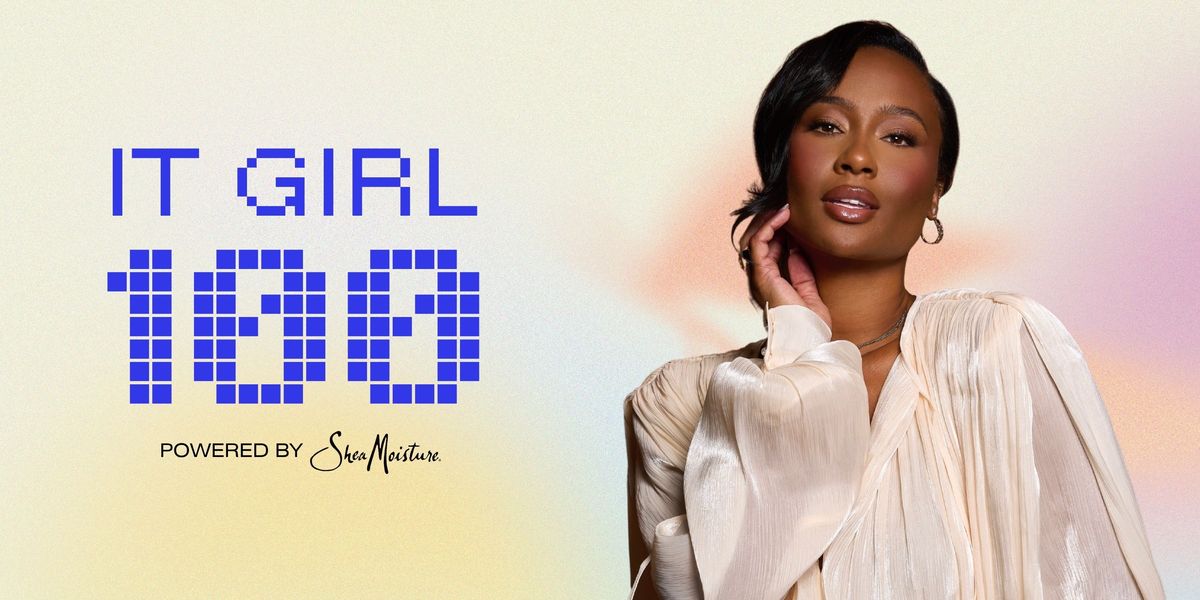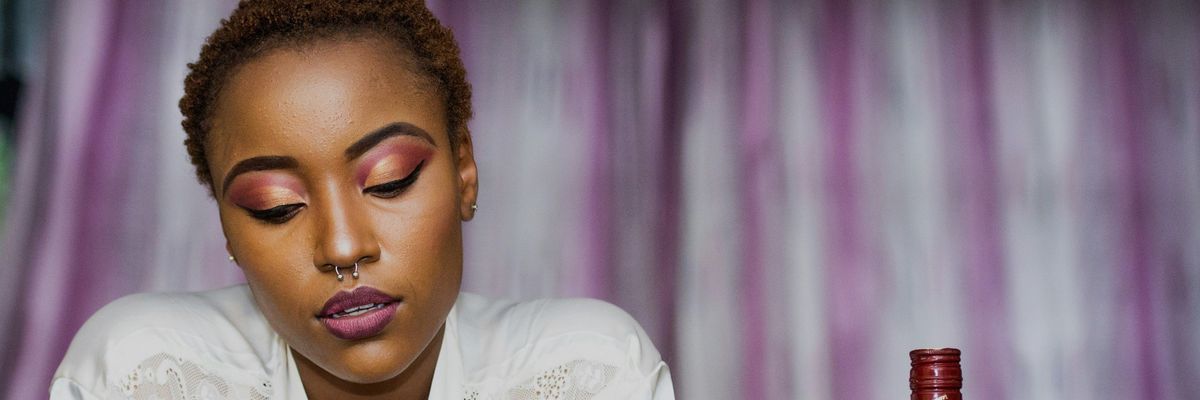These 4 White Women Discuss Racism. And You're Going To Want To Read What They Have To Say.
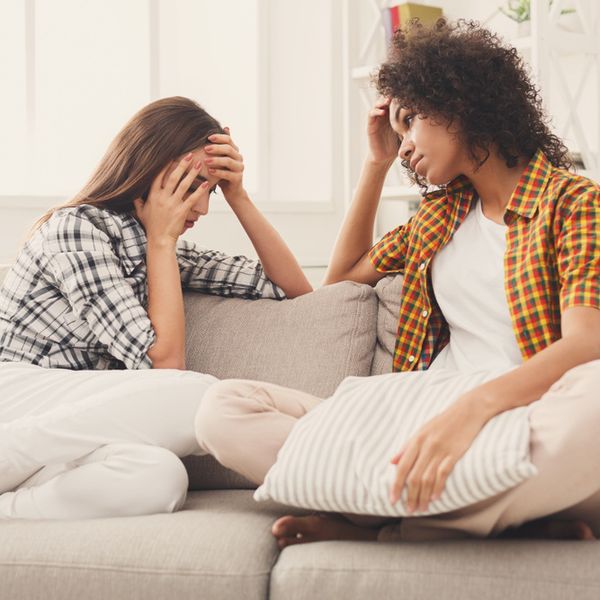
Like so many of us, I've experienced my fair share of racism as a Black woman in America. Growing up in the South, it was a normal day to pass hundreds of Confederate flags and a number of white supremacist statues on my way to school (blatant racism). And in Chicago, it's completely normal to drive past a corrupt police department on an ignored and under-resourced south side and pull up to a multi-billion dollar invested, highly-protected, and resourced downtown/northside, on the way to work (systemic racism).
My first actual experience with racism, a white lady called my sister a “nigger" at a swimming pool for accidentally splashing her son. We told our mother what happened, and her natural mother-bear mode instantly activated, as she jumped up to confront the lady. Instead, her husband jumped in my mother's face and said these words that still sting to this day: “Get the fck out of here or we're going to be hanging some heads tonight." I was 6.
My mother did something I had never seen her do before, she backed down. I remember being confused. My mother never backs down.
Far too many of us have the same experiences, but outside of anger, we're never sure where to start to end it. We've made some progress, but how can we continue making waves within the uprising that is happening today?
One way: talk about it. Most importantly, talk about it with white people (and by that I mean actually have the conversation and not some Facebook debate).
So, we took the time to ask a group of white women (from varying ages and backgrounds) their thoughts on the current state of the country. We also asked them to discuss the racism that they've witnessed in the past, and what they plan to do to help fix it. Each woman respectfully and honestly shared their very real experiences with us, which may be triggering to some. But again, it's real. So, let's have this very real conversation together.
Because as the great queen muva, Rihanna, says: "This is their problem too...so pull up."
(some responses may be cut or edited for clarity, but never to change their narrative).
De'Shae | 34 | Little Rock, AR

Photo Courtesy of De'Shae Bumgardner
The first time that I can remember even realizing that race existed was when I was about four years old. One of my parents told me that they would disown me if I were to ever date a "n***er". I was extremely confused because, sadly, that was also the name of my pet cat. I thought, Why in the world would they think I would want to date a cat?!
When they told me that the word stood for Black people, I was even more confused...
My Thoughts On The Current State Of The Country
I have a lot of mixed emotions about the current state of the country. On one hand, I feel extremely proud of the people who are standing up against racial injustice, but on the other, I hate that in 2020, racial injustice is still happening. And it doesn't help that we have a president whose words and actions fuel white supremacy, which is a direct threat to my son's life and the lives of all people of color. His fuel has also ignited the racism within so many friends and family members, who I've had to cut ties with. Before the Trump presidency, my son had never been the subject of direct racism. Since then, I have gotten several racist death threats from supposed strangers.
I try to be optimistic about the future and I hope it will get better with time, but I also have my doubts and I wonder if I want to wait around to see if it ever happens.
My Inspirations To Denounce Racism
My biggest inspiration is my son. Before having him, I thought I was doing enough by just loving Black people and hating the N-word. After having him, something ignited inside of me that has made it one of my life goals to do everything in my power to help make this country a safer and more equal place for him and all Black people.
I wish I could be with my son on the battlegrounds at all times, but I can only help equip him with the tools to win. Tools I had to gain first; tools I have never, as a white person, been required to use before.
One of these tools is my voice and I use it by speaking out as much as possible.
An Experience Witnessing Black Women's Racial Journeys
I was in second grade when my best friend joined my mom and I to go see a movie. The place was packed, so my friend who is Black sat in my mom's lap. Several white people behind us voiced their opinion about how disgusting they thought it was to let a Black person sit in her lap. They called her a "n***er". She didn't shed a tear, but I did. I had never witnessed that type of situation. When we got back home and discussed it further, and she basically told me that she had been called that name so much, that she was numb to it.
She was nine years old and already had a racial journey. From there on out, I realized how incredibly brave Black people are forced to be.
Supporting Black People In My Daily Life
I support Black people by always speaking out. I try to listen and learn from those in my life. I use my white privileges to intervene when my Black friends are mistreated. I intentionally shop with Black businesses and donate to various causes that help the Black community.
I have also tried my best to support my Black son. When I realized that his public school was only teaching him a watered-down version of Black history for one month a year, I pulled him from school and began homeschooling him. I currently work full-time and have been homeschooling my son for the past two years. Instead of once a year, he now learns about Black history and Black excellence almost daily.
What I Wish Black People Knew About Me
I honestly feel extremely understood and accepted by all of the Black women that I have encountered. If anything, I would hope they understand that I am on their side, I see them, I hear them, I highly respect them, and I strive to learn more about how I can help them.
Bridging The Gap
I think that both sides having an open and honest dialogue helps tremendously. I learned so much from just comparing how police have treated me versus how my friends of color have been treated in the same situations. I have gone to a gas station before and the clerk told me that my $50 bill was counterfeit (exactly the same as George Floyd). But I was THANKED for my "help." I was not reprimanded in any way.
So, I think the biggest thing that white people can do is listen to learn, instead of listening to respond. Also, learning history that was not white-washed opened my eyes about a lot of things that I had previously misunderstood.
Kim | 33 | Metairie, LA
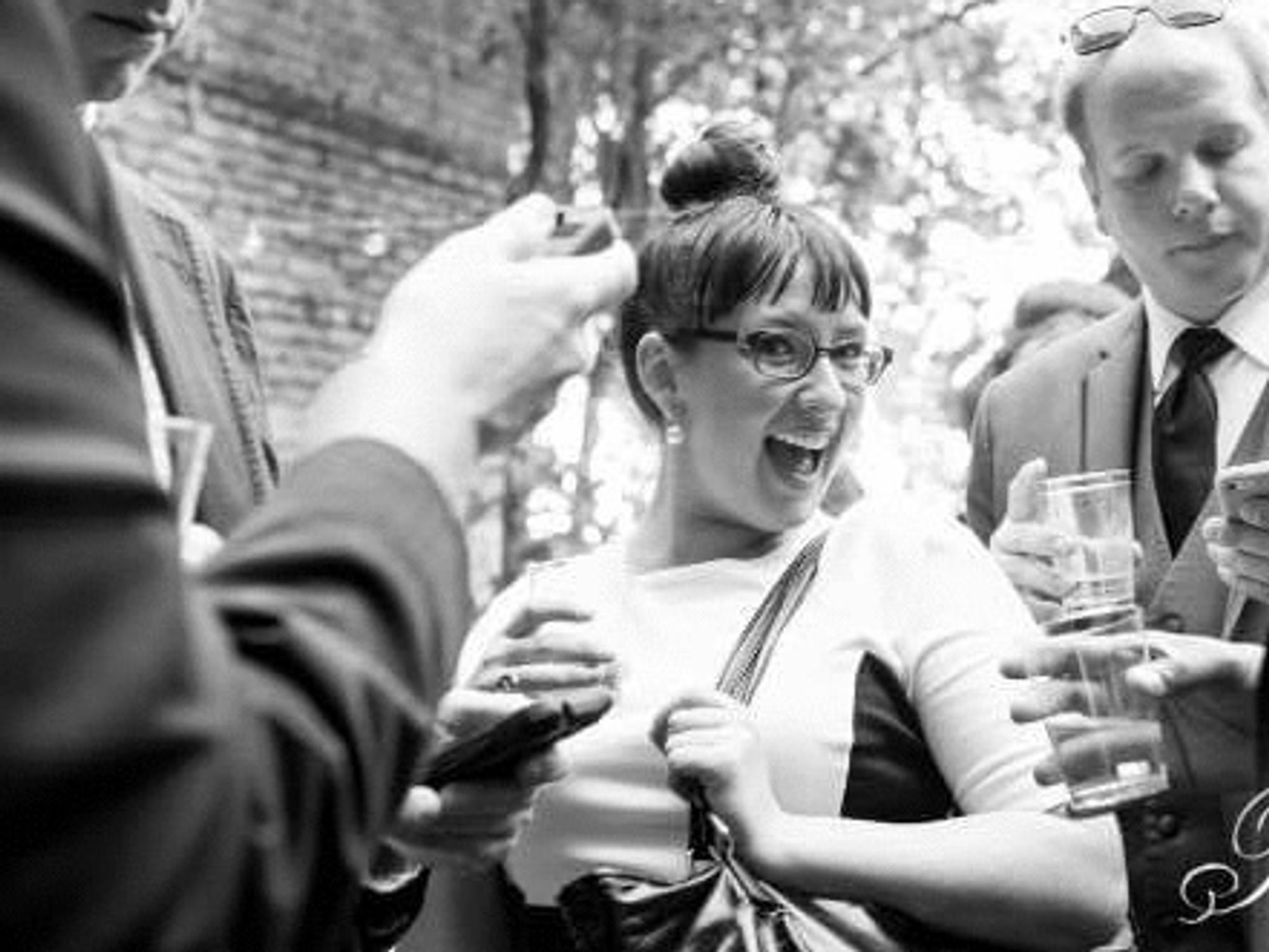
As a child, I was used to being one of the only white girls around.
I noticed that when I went into the stores with my friends, that I wasn't followed around the same way they were. That's what made me realize that me being white made people around me feel a different way towards me...
My Thoughts On The Current State Of The Country
I'm excited/scared about the current state of this country. I'm excited to see that people have become fed up with the current system of oppression. I wish there was a better way to convey our disgust with the current system, but since the powers that be have yet to listen to peaceful protests, this is where we are.
My Inspirations To Denounce Racism
I want to say that I've always been receptive to my Black friends' issues. I certainly know that I get extremely upset when they are upset but I try to refrain and just listen.
An Experience Witnessing Black Women's Racial Journeys
I grew up in South Georgia where I was raised Southern Baptist. I would go to my Black friends' church and would always feel welcome. When I brought my Black friends to my mama's church, the energy was not comparable in the least. I KNEW something was off.
Supporting Black People In My Daily Life
I try to closely observe and read up on issues, rather than ask my friends to educate me because why should I ask them take on more emotional labor than they need to?
What I Wish Black People Knew About Me
There's not really much that I expect for Black women to understand about me. It's not their job. I get frustrated when white people expect Black people to explain to them their fucking humanity because IT'S NOT THEIR JOB! And if white people expect them do it, pay them for the emotional labor.
I guess I'm saying that I want Black women to know that they don't owe me anything and I will always be here to listen. I've learned that I'm way better at getting my point across in person, so I try to not explain anything on social media. I tend to be curt and sarcastic when speaking with an "all lives matter" audience, and that doesn't help anyone.
Bridging The Gap
I don't think that Black people really need to do much to bridge the gap. This is a responsibility that solely rests on our souls. I mean, historically, it was white people who started this mess, so why is it so hard for them to put in the emotional labor and see things in a different light (as you can see I am big on "emotional labor")?
Listen, I know that as a white woman that I have privileges. And I will try my best to exercise those privileges in a way that protects my Black friends and amplifies their voices. Always.
Antonia | 57 | Prince George’s County, Maryland

I think I was four or five years old, I lived in an area where schools were integrated—and back in my day, this was a big deal. I was paired with a Black girl to practice reading, and my mother explained to me that I was probably going to be a white N-word (she said the word, obviously). I didn't understand what that meant, but I knew it was bad...
My Inspirations To Denounce Racism
I have a big mouth sometimes, which is great for helping me show my ass on this subject. But ultimately, I'm inspired by the life of Kenyan Nobel [Peace Prize recipient] Laureate Wangari Maathai, who helped bring about political change and environmental restoration by having thousands of small conversations with women. She talked a lot about taking small steps and doing little actions—hers was planting trees.
I try to stay in the background and put Black women forward to speak, and I think a lot about how Maathai did her work over 30 years and ended up changing so much for her country.
An Experience Witnessing Black Women's Racial Journeys
A couple years ago, I was working with a group of Black teenagers in a summer program, and we were discussing how when doing sustainability outreach, we needed to consider the cultural context of our audience. I made recommendations for best practices but a colleague of mine interrupted to say she didn't feel that Black customers being accused of shoplifting was necessarily a “race thing" because similar things happened to her elderly mother.
But one of the young girls in the program was incredible. She talked about how white women could dress up or down and shift how people see us, but that she could never ever take off her skin, so being Black was right at the foreground of how people perceived her every time she walked into a business. She was fabulous, but angry. Determined and focused, and she spoke very clearly about how race and the history of violence against Black people and communities create burdens for her that white people can avoid if they want to. It was hard for my skeptical colleague to take in at the moment, but I think it has stayed with her as it has with me and it let me know that even skeptical people are open to letting in the pain of really seeing how racism affects Black people.
Supporting Black People In My Daily Life
This is a new realization over the last few weeks: I've always been the kind of person who has casual conversations with, oh, the guys in line at Home Depot or wherever, and when there is huge public grief and anger about yet another death in police custody, yet another racist policy enacted whatever, I mention it. I sympathize with them and wish that we could do better, and I listen to them talking about their sadness and anger. I don't know if it helps, but I've had some conversations that left me feeling like perhaps we could someday become one people, a unified community. Of course, then I go right back out into the world, so it's an ongoing thing.
It's not much, and I'm always worried that I'm doing it for cookies, so I don't usually talk about it elsewhere. But discussion is one of the things I can do with Black and white friends, colleagues, or even with strangers at Home Depot. Hopefully, it helps to carry some of the weight and responsibility for all the events that create traumatic stress for Black people in America.
What I Wish Black People Knew About Me
I think Black women have no obligation to try to understand me whatsoever because the weight of history is just crushing. I would hope that my Black friends understand that that weight is on me to fix, especially with the ways in which my mother taught me about race, and to see, in a non-cookie-giving way, how hard I have worked to bear those lessons without passing them on to my children or reenacting them in my daily life. I also think that the legacy of slavery and racist violence has left scars on white Americans and that most white people don't see how that legacy festers and holds them back. I guess I wish Black women could understand that, but frankly, it's irrational and cruel to expect Black women dealing with our current climate of racism to any work into understanding me, or white people generally, so that'll have to wait.
Bridging The Gap
Keep talking. Keep doing the little actions that make your community a bit better, and that improves the lives of children and families. Keep recognizing that white women are often not aware of how race plays into their actions, and finding time for small conversations (including angry ones) that help us get that. And all women need to take care of themselves. The womanist writer, bell hooks, has a great book – Sisters of the Yam – that is all about self-care and has been really helpful for me. We need to take care of ourselves first to be healthy enough to fight on.
Jessica | 27 | Chicago, IL
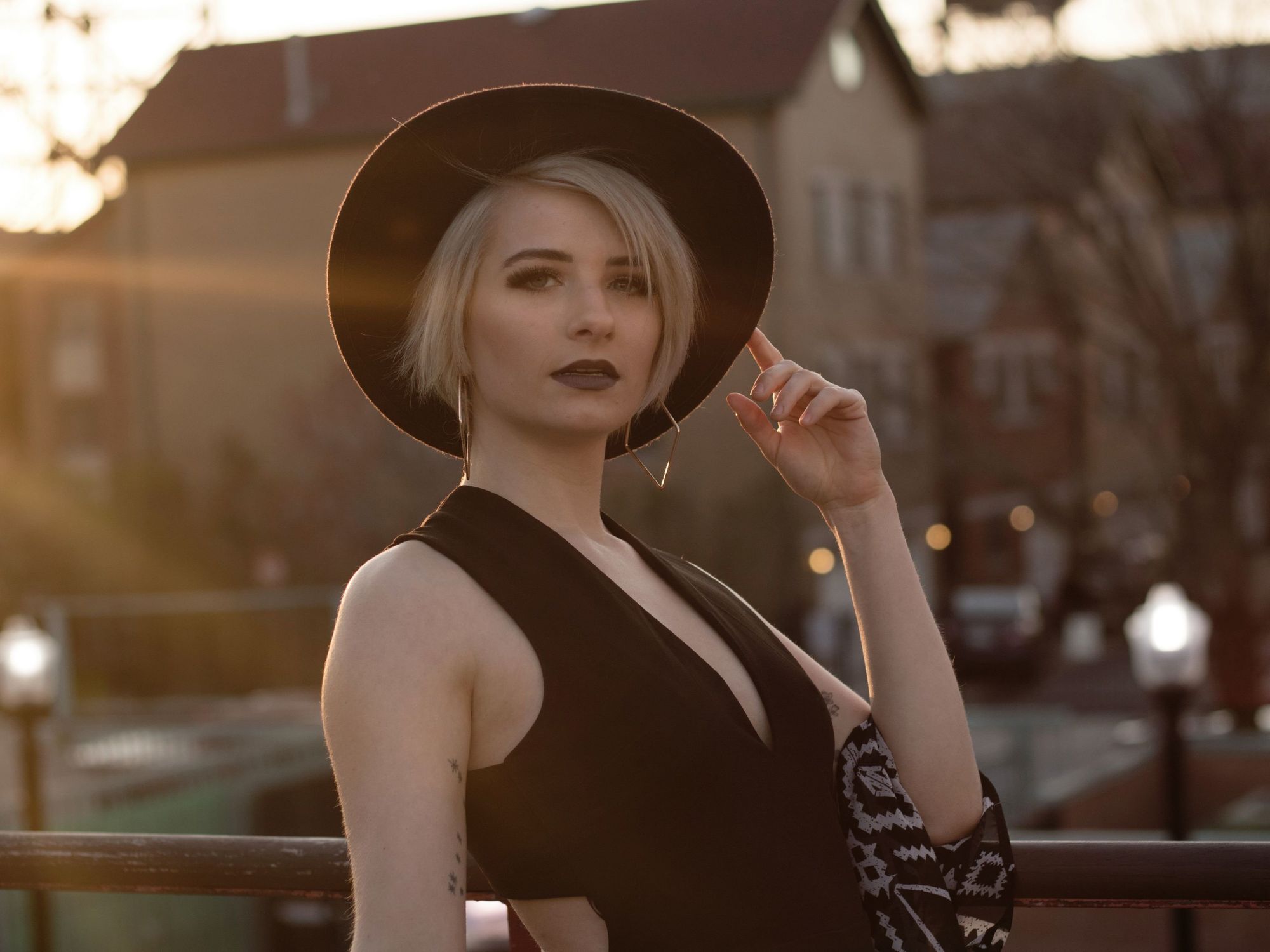
Photo courtesy of @lynx.imagery
Hindsight is 20/20 when you're looking back on 20 years and your mindset has changed so many times. I remember going to a Black classmate's house for a group project around third grade. For whatever reason, it confused me that her family lived in a townhome. It was very odd to me as a child, since every other friend's house I'd been to was an independently-standing house. I don't know if I understood race or saw her race and correlated the difference in homes to her skin color, but somehow I connected those dots. I say this from a tiny Chicago apartment now, too.
But this was one of my first realizations that people can be different...
My Thoughts On The Current State Of The Country
Our country is in shambles right now. Never in our history have we been in the midst of a pandemic when a revolution has started and I know a ton of people are confused about what's going on. Hell, our government doesn't even know what's happening. The Mayor of Chicago has been handling everything fairly professionally though and I feel like she's doing a good job at balancing our quarantine phases with the protests and looting that have been happening this past week.
My Inspirations To Denounce Racism
I'm usually a quiet observer, as my friends can clearly testify. I usually prefer to listen instead of debate with someone. But I was also a part of the Occupy movement back in 2011/2012 and it gave me a voice and reminded me that there is power in numbers, and the numbers are angry this time around. The majority of my activism this time, has been from home, however. I'm so proud of the peaceful protests my city has organized, but there's so much work that can be done on our computers and phones. Petitions need to be signed, emails need to be sent to our representatives, and time and money need to be donated to those on the front line of this movement.
An Experience Witnessing Black Women's Racial Journeys
My best friend is Black, and she grew up in Topeka, KS, home of the infamous Westboro Baptist Church. Topeka is a predominantly white city, with only about 10% of the population being Black. I know things are much different in Kansas from the suburbs of Chicago where I was raised and every time she tells me about something drastic that happened while she was growing up, it shocks me because I was so sheltered in my hometown.
I currently live in a predominantly Hispanic neighborhood and she lives about 10 minutes south in an Asian/Lithuanian neighborhood. This week in Chicago we've had looters coming in from out of town, so the gangs in my neighborhood were actually protecting the businesses and homes to prevent damage. Of course, the neighbors quickly became a protective barrier against the gangs to the Black people who live in the community when I found out that the gangs were attacking people of color for just trying to return to their homes. These are our neighbors and they were being attacked for their skin color by another minority. When I mentioned this to my best friend, she casually said, "Mexicans hate Blacks and they tried to burn down my house when I was little."
Clearly, I was shocked at her casually bringing this up and it made me realize that this country isn't just segregated by hatred between white and Black, but the hatred can sometimes come from other minorities too.
Supporting Black People In My Daily Life
I don't think I've ever treated any Black person in my life differently (except for my best friend whom I smother with love and guinea pig pictures) and I think treating everyone with the same amount of respect and compassion and sense of human decency is a great way to support Black people in our lives. When people around us see these open displays of companionship and camaraderie (especially working in the restaurant industry where we are literally united as a family), I hope it makes them feel less threatened by the differences between and around us.
What I Wish Black People Knew About Me
I feel like I'm not even in a position to preach about myself right now, so I'll keep this short: I grew up (unknowingly back then) surrounded by white privilege and attending mostly white schools. But now, Black women, I empathize with you and your stories. Please tell them to me. I want to hear them. I am still a woman and I know we've all been treated differently just because of that. But I'm on your side and I stand with you.
Bridging The Gap
I recently read an article by Cynthia Schmidt, a UCF columnist, about bridging the gap. She says "It's virtually inconceivable for white folks to have police called on them for merely existing, and because white people are able to surround themselves in white bubbles, it's like we white people are reading the book of racial history and racial current events, while our Black countrymen are watching the film, or harder yet, starring in the film."
So in order for white people to put the "book" down and participate in the history that's acting out in front of us, we need to do research. Our school system has done nothing for our education on Black America.
There are so many books and films and articles to read and watch, and once we have a better grasp on what happened outside of our history textbooks, we can further integrate ourselves into predominantly Black communities, but as guests. We can visit their churches and support their restaurants and other businesses. I also agree with Cynthia when she says, "Black folks do not bear the burden of creating the bridge. They cannot, as it is already hard enough to be Black in America without having to educate white folks along the way. Merely existing as a Black person here is enough work."
Featured image by Shutterstock
Exclusive: Viral It Girl Kayla Nicole Is Reclaiming The Mic—And The Narrative
It’s nice to have a podcast when you’re constantly trending online. One week after setting timelines ablaze on Halloween, Kayla Nicole released an episode of her Dear Media pop culture podcast, The Pre-Game, where she took listeners behind the scenes of her viral costume.
The 34-year-old had been torn between dressing up as Beyoncé or Toni Braxton, she says in the episode. She couldn’t decide which version of Bey she’d be, though. Two days before the holiday, she locked in her choice, filming a short recreation of Braxton’s “He Wasn’t Man Enough for Me” music video that has since garnered nearly 6.5M views on TikTok.
Kayla Nicole says she wore a dress that was once worn by Braxton herself for the Halloween costume. “It’s not a secret Toni is more on the petite side. I’m obsessed with all 5’2” of her,” she tells xoNecole via email. “But I’m 5’10'' and not missing any meals, honey, so to my surprise, when I got the dress and it actually fit, I knew it was destiny.”
The episode was the perfect way for the multihyphenate to take control of her own narrative. By addressing the viral moment on her own platform, she was able to stir the conversation and keep the focus on her adoration for Braxton, an artist she says she grew up listening to and who still makes her most-played playlist every year. Elsewhere, she likely would’ve received questions about whether or not the costume was a subliminal aimed at her ex-boyfriend and his pop star fiancée. “I think that people will try to project their own narratives, right?” she said, hinting at this in the episode. “But, for me personally – I think it’s very important to say this in this moment – I’m not in the business of tearing other women down. I’m in the business of celebrating them.”
Kayla Nicole is among xoNecole’s It Girl 100 Class of 2025, powered by SheaMoisture, recognized in the Viral Voices category for her work in media and the trends she sets on our timelines, all while prioritizing her own mental and physical health. As she puts it: “Yes, I’m curating conversations on my podcast The Pre-Game, and cultivating community with my wellness brand Tribe Therepē.”
Despite being the frequent topic of conversation online, Kayla Nicole says she’s learning to take advantage of her growing social media platform without becoming consumed by it. “I refuse to let the internet consume me. It’s supposed to be a resource and tool for connection, so if it becomes anything beyond that I will log out,” she says.
On The Pre-Game, which launched earlier this year, she has positioned herself as listeners “homegirl.” “There’s definitely a delicate dance between being genuine and oversharing, and I’ve had to learn that the hard way. Now I share from a place of reflection, not reaction,” she says. “If it can help someone feel seen or less alone, I’ll talk about it within reason. But I’ve certainly learned to protect parts of my life that I cherish most. I share what serves connection but doesn’t cost me peace.
"I refuse to let the internet consume me. It’s supposed to be a resource and tool for connection, so if it becomes anything beyond that I will log out."

Credit: Malcolm Roberson
Throughout each episode, she sips a cocktail and addresses trending topics (even when they involve herself). It’s a platform the Pepperdine University alumnus has been preparing to have since she graduated with a degree in broadcast journalism, with a concentration in political science.
“I just knew I was going to end up on a local news network at the head anchor table, breaking high speed chases, and tossing it to the weather girl,” she says. Instead, she ended up working as an assistant at TMZ before covering sports as a freelance reporter. (She’s said she didn’t work for ESPN, despite previous reports saying otherwise.) The Pre-Game combines her love for pop culture and sports in a way that once felt inaccessible to her in traditional media.
She’s not just a podcaster, though. When she’s not behind the mic, taking acting classes or making her New York Fashion Week debut, Kayla Nicole is also busy elevating her wellness brand Tribe Therepē, where she shares her workouts and the workout equipment that helps her look chic while staying fit. She says the brand will add apparel to its line up in early 2026.
“Tribe Therepē has evolved into exactly what I have always envisioned. A community of women who care about being fit not just for the aesthetic, but for their mental and emotional well-being too. It’s grounded. It’s feminine. It’s strong,” she says. “And honestly, it's a reflection of where I am in my life right now. I feel so damn good - mentally, emotionally, and physically. And I am grateful to be in a space where I can pour that love and light back into the community that continues to pour into me.”
Tap into the full It Girl 100 Class of 2025 and meet all the women changing game this year and beyond. See the full list here.
Featured image by Malcolm Roberson
There is a very specific reason why I decided to write this article before the holiday season officially gets underway. It’s because I once read a study that said it’s quite common for most Americans to double the amount of alcohol that they consume between Thanksgiving and New Year’s Day.
It makes sense when you stop to think about all of the holiday parties, time off, and moments spent with loved ones that transpire around this time of year. And while there is certainly nothing wrong with enjoying some mulled wine, real-deal eggnog, or peppermint martinis, because your health is something that never “takes a vacation,” I thought it was important to share with you some of the benefits (pros) and challenges (cons) that can arise from alcohol consumption.
My main motive? Mostly, I hope that it will serve as a solid reminder to embrace all of the things that you adore about this time of year, so long as you do it in moderation and you weigh the costs.
Especially as far as drinking alcohol is concerned.
PRO: Manages Blood Sugar Levels
 Giphy
GiphyHere’s something that you may have never seen coming. Were you aware of the fact that alcohol can actually help to stabilize your blood sugar? Yep, according to the American Diabetes Association, so long as you leave it to no more than 1-2 cocktails a day, alcohol may be able to lower your A1C levels. Pretty cool, right?
CON: It’s a Carcinogen
 Giphy
GiphyAlcohol is a carcinogen. The reason why this should somewhat alarm you is because carcinogens are things (like tobacco, UV rays, processed meats, etc.) that can increase your chances of being diagnosed with cancer (especially mouth, throat, esophagus, stomach and breast cancer). There are various ways this happens including the fact that alcohol, specifically, can hinder your body from breaking down certain nutrients, it can cause your estrogen levels to spike and alcohol can also cause certain toxins to damage your DNA and certain bodily proteins over time.
PRO: Cultivates Euphoric Feelings
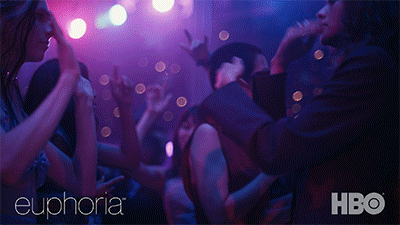 Giphy
GiphyIf you find yourself feeling more euphoric while you’re enjoying a drink, it’s not all up in your head. Although, for the more part, alcohol is considered to be a depressant, when consumed in small amounts, it can provide a stimulant effect. This happens due to the fact that when you first start to consume alcohol, it causes the production of the feel-good hormone known as dopamine to increase — and since dopamine makes us all feel more relaxed and confident while heightening our senses of pleasure too…well, there you have it.
CON: May Increase Anxiety/Depression
 Giphy
GiphyAs they say, “what goes up, most come down” at some point — and that is what you have to be careful of when it comes to alcohol consumption. For instance, when you drink alcohol, although it tends to initially cause your dopamine levels to uptick, because it is a temporary bodily response, sometimes the dips are lower than the rises…and that is when anxiety starts to kick in. A similar point is made with depression because oftentimes, people with depression-related symptoms, will use alcohol as a way to deflect from what’s really going on with them — and that can make them feel even worse than ever once the buzz of alcohol starts to wear off.
PRO: Has Some Heart-Related Benefits
 Giphy
GiphyWhen it comes to your heart, there are interesting findings surrounding its relationship to alcohol. For instance, some research states that, so long as the consumption is moderate, alcohol can actually help to increase the good cholesterol in your system while also breaking down proteins that can potentially lead to blood clots; both of these factors alone can reduce your chances of dying from heart disease.
CON: Packs on Pounds
 Giphy
GiphyIt’s no secret that alcohol tends to contain quite a few calories. That’s why, it’s not uncommon for people who’ve lost weight to mention “I’ve stopped drinking” as one of the causes for the shed pounds. That’s not to say that there aren’t some alcoholic beverages that have less calories than others including vodka (133 calories per serving), white wine (148 calories per serving) and tequila (99 calories per shot). Just keep in mind that the more you drink, the more calories get into your system and the more weight you stand to gain.
PRO: Lowers Inhibitions
 Giphy
GiphyAlthough you really should only be uninhibited around people who you absolutely trust, if that person is your partner and you’re looking to have a pretty — eh hem — active evening, alcohol can certainly help to make that happen. The science of it all is the prefrontal cortex of your brain is what regulates your inhibitions and levels of self-control. Meanwhile, alcohol suppresses your inhibitions which can cause you to be more spontaneous and open to trying things that you might not immediately do if you were sober. And with the right individual, that can be sexually beneficial (emphasis on “right person”).
CON: Makes It Harder to Orgasm
 Giphy
GiphyOn the other hand, as odd as it may seem (in light of what I just said), if you have too much alcohol in your system, it could make climaxing difficult. That’s because orgasms happen, in part, due to your nervous system being stimulated — and since alcohol is technically a depressant…well, it could reduce nerve sensitivity (especially as far as your clitoris goes) for you while making it challenging for your partner to remain erect or have consistent stamina. And yeah, that sucks.
____
‘Tis the season. And with that, if some wassails or hot buttered rums are in your immediate future — hey, don’t let me stop you — not even a lil’ bit.
All I’m saying is now that you know what alcoholic drinks have to offer (both ways), you can know exactly how to incorporate them into your holiday plans. Enjoy!
Let’s make things inbox official! Sign up for the xoNecole newsletter for love, wellness, career, and exclusive content delivered straight to your inbox.
Featured image by Unsplash



